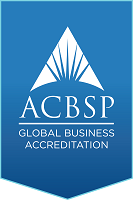Why Study Finance?
Our leading-edge program equips you to become a relied-upon expert in the financial industry. Our committed, forward-thinking faculty will prepare you to evaluate data, study trends and make recommendations to organizations and individuals regarding their finances. You’ll gain an understanding of financial markets, instrumentation and investments.
What You'll Learn
A bachelor’s degree in finance opens professional doors in a number of disciplines from insurance to small business finance to federal income tax and more. You’ll learn to take a broader view of an organization’s assets and liabilities in order to make recommendations, and apply principles of economics, management, business ethics and information systems. You’ll explore advanced finance as it relates to individuals, markets, corporations and institutions.



